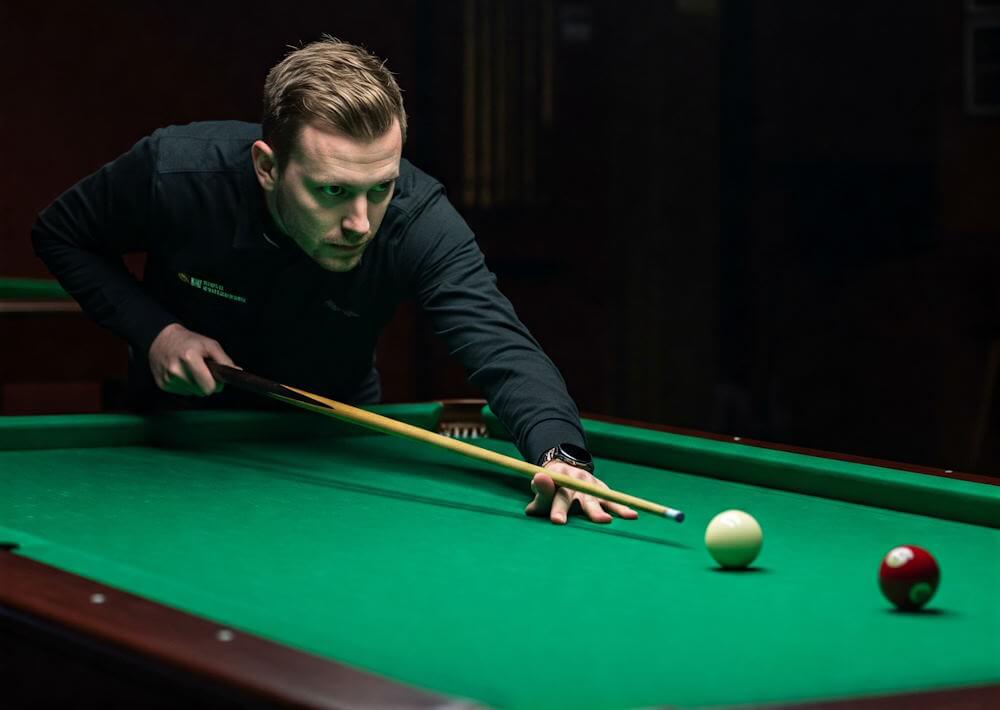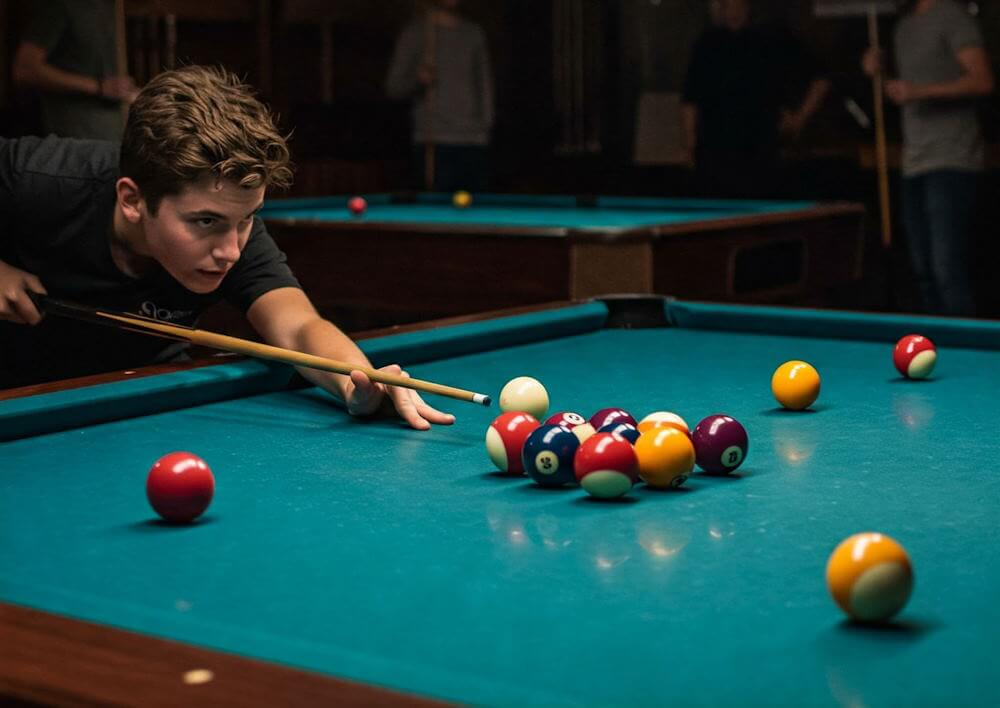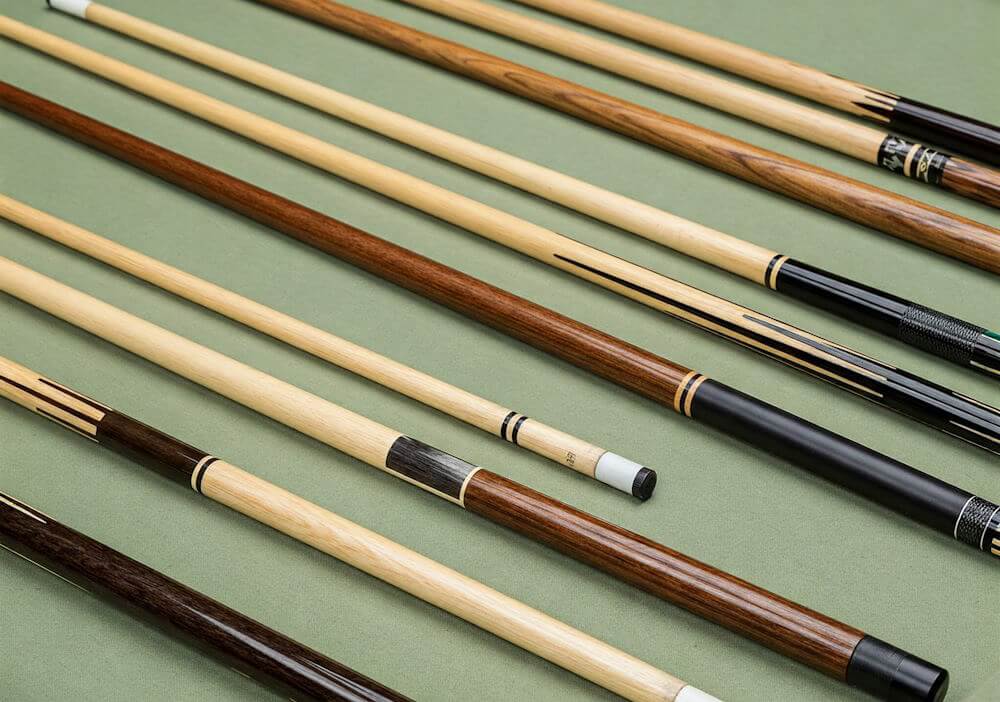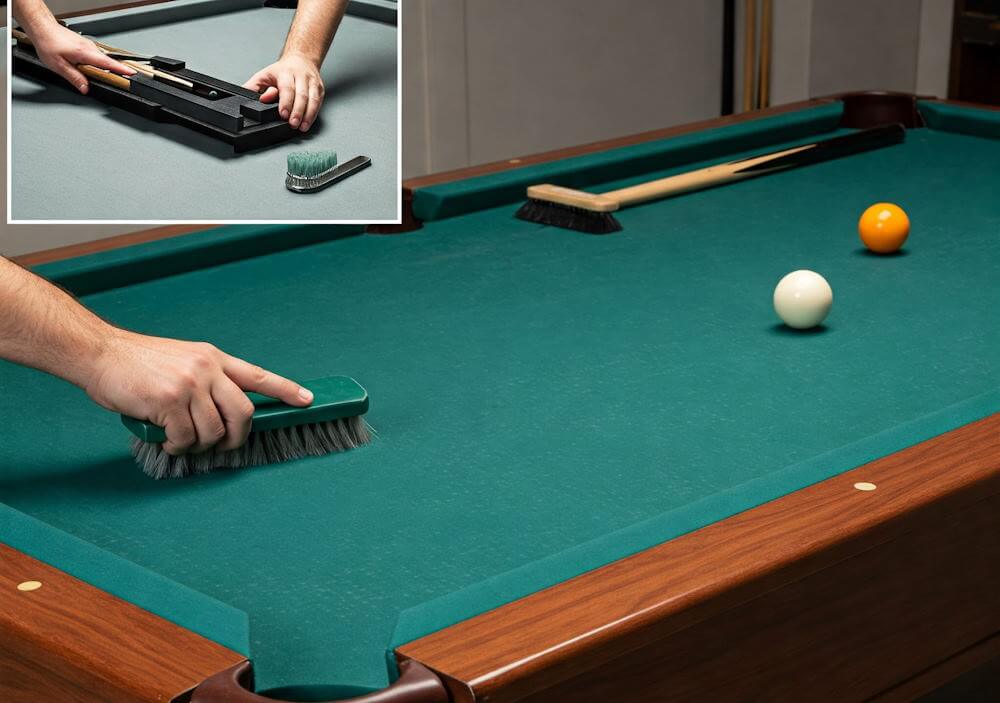The psychology of billiards is a fascinating realm that intertwines mental discipline with physical execution. Often seen as merely a game of skill, billiards actually demands a significant psychological framework to enhance performance. It is in this intersection of mind and body that one realizes the importance of maintaining focus during a game. The ability to concentrate and remain in a positive mental state can greatly influence an individual’s shot selection, strategic execution, and overall gameplay.
Understanding one’s mental state is crucial in billiards. A player’s mindset can either amplify their strengths or magnify their weaknesses, which significantly impacts their performance on the table. For example, a calm and focused player is more likely to assess the playing field effectively and adapt their strategy accordingly. In contrast, stress or distraction can lead to poor choices and missed shots. This psychological component underscores the necessity of mental conditioning and preparation as part of a player’s training routine.
As competitive billiards requires sustained focus, it is imperative for players to cultivate a state of mental clarity. Techniques such as visualization, mindfulness, and breathing exercises can be beneficial in achieving this heightened focus. By integrating psychological strategies into their practice, billiards players can not only improve their gameplay but also enjoy a deeper understanding of the game itself. In essence, mastering the psychology of billiards empowers players to approach each match with enhanced confidence and poise, ultimately elevating their performance to new levels.
Understanding Focus in Sports
Focus in sports is a multifaceted concept that plays a crucial role in an athlete’s performance. At its core, focus can be defined as the ability to direct one’s attention towards relevant stimuli while ignoring distractions. In the realm of billiards, this means honing in on the nuances of the game—such as the angle of a shot, the positioning of the cue ball, and the movement of opponents—while remaining unperturbed by external disturbances or inner distractions.
To further elucidate the idea of focus, it is essential to differentiate between concentration and relaxation, as both states contribute significantly to athletic performance. Concentration involves an acute awareness of the immediate game context, allowing players to make precise decisions based on their observations. In billiards, this might manifest in the careful calculation of shot trajectories or the tactical deployment of defensive play. On the other hand, relaxation is equally vital; it allows players to maintain a calm demeanor, which can prevent anxiety and overthinking during critical moments of the game.
Developing both concentration and relaxation requires practice and intention. Visualization techniques, for instance, help players mentally rehearse ideal shots and scenarios, thereby sharpening their focus. Additionally, breathing exercises can foster relaxation, providing a pathway to achieve mental clarity and heightened awareness during gameplay. Achieving a balance between concentration and relaxation allows billiards players to engage fully in the game, ultimately leading to a more satisfying and competitive experience.
In summary, understanding the nuanced roles of focus, concentration, and relaxation is invaluable for any billiards enthusiast. Mastery over these mental states can significantly enhance performance, enabling players to excel in the intricate art of billiards.
Common Distractions in Billiards
Distractions in billiards can significantly impact a player’s performance, leading to missed shots and decreased concentration. Understanding the myriad of distractions that may arise during a game is essential for players looking to optimize their focus. Distractions can be broadly categorized into internal and external factors.
Internal distractions often stem from psychological states that can impede a player’s ability to concentrate. Anxiety is a common internal distraction; the pressure to perform well can trigger feelings of nervousness and self-doubt. Such emotions can cloud judgment and lead to a lack of confidence, adversely affecting shot selection and execution. Similarly, overthinking can also be a substantial barrier. As players contemplate their strategies, they may inadvertently hinder their natural instincts, resulting in a breakdown in focus. These psychological hurdles, therefore, exemplify the need for mental conditioning to maintain a high level of concentration during the game.
On the other hand, external distractions can equally disrupt a player’s flow. The environment in which billiards is played is often rife with potential disturbances. For instance, crowd noise, in the form of clapping, conversations, or even laughter, can create a chaotic atmosphere. Such stimuli can be particularly distracting when a player attempts to make crucial shots, diverting attention from the game itself. Furthermore, environmental factors such as lighting and table conditions can contribute to distractions; for example, glare from overhead lights may obscure the player’s vision, compromising their ability to assess angles accurately.
In essence, both internal and external distractions play a pivotal role in the psychology of billiards. Players must develop strategies to mitigate these distractions, allowing them to enhance their focus and overall performance in the game.
Mental Techniques to Enhance Focus
Enhancing focus during a billiards game requires a blend of mental techniques and strategies that players can integrate into their practice routines. One effective method is visualization, wherein players imagine themselves executing perfect shots and experiencing successful outcomes. To incorporate this practice, players should find a quiet space where they can mentally rehearse their movements and strategies. By vividly visualizing the desired scenarios, they not only prepare mentally but also reinforce muscle memory, leading to improved performance during actual play.
In addition to visualization, mindful breathing is a powerful technique to help players maintain concentration. This practice involves taking deep, controlled breaths to reduce anxiety and cultivate a sense of calm before and during a game. Players can adopt a simple sequence: inhale deeply through the nose for a count of four, hold the breath for another four counts, and exhale slowly through the mouth for a count of six. This method not only lowers stress levels but also aids in returning focus to the game, enhancing decision-making and execution during critical moments.
Setting specific goals is another crucial strategy for boosting focus in billiards. Players should clearly define short-term and long-term objectives that are measurable and attainable. For instance, a short-term goal could involve improving the accuracy of a specific shot within a set timeframe, while a long-term goal might aim for an increase in overall game performance by a certain percentage. By tracking progress towards these goals, players cultivate a sense of accountability and motivation, which can significantly enhance their concentration levels during each session.
By incorporating techniques such as visualization, mindful breathing, and goal-setting, billiards players can develop a more focused mindset. These strategies not only improve gameplay but also contribute positively to the overall experience of playing billiards.
The Role of Routine in Maintaining Focus
In billiards, maintaining a strong focus is crucial for executing successful shots. A well-defined pre-shot routine serves as a foundation for achieving this focus. This routine not only helps players prepare mentally but also creates a consistent experience that can enhance performance under pressure. When a player engages in a pre-shot routine, the mind is guided toward specific actions and thoughts, fostering an environment conducive to clarity and precision.
Establishing a routine can involve several key elements, such as visualizing the desired shot, assessing the table layout, and taking a few deep breaths. These components work together to center the player’s thoughts, ensuring that distractions from the environment, such as noise or the presence of other players, have minimal influence on performance. A consistent routine also promotes muscle memory, allowing players to smoothly execute shots without overthinking each movement.
Additionally, adhering to a regular routine helps alleviate performance anxiety. By focusing on a set sequence of actions before each shot, players can divert their minds away from potential pitfalls or mistakes. This mental distraction reduction can significantly improve shot execution. Moreover, engaging in a routine establishes a psychological anchor that players can rely on during critical moments in a game.
Another important aspect of a pre-shot routine is its adaptability. While it is essential to maintain a consistent approach, players can adjust their routines based on personal preferences or varying circumstances during a game. This flexibility can help sustain focus even when facing unforeseen challenges, further enhancing a player’s concentration and overall performance. Ultimately, mastering the art of routine not only bolsters focus during a billiards game but also cultivates a stronger mental game that can be applied across various aspects of life.
The Impact of Mindset on Performance
The mindset of a billiards player plays a crucial role in determining their performance during a game. Understanding the distinction between a growth mindset and a fixed mindset can provide insights into how one approaches the sport. A growth mindset fosters resilience and adaptability, allowing players to view challenges as opportunities for improvement. In contrast, a fixed mindset can lead to the avoidance of challenges and a fear of failure, ultimately detracting from the player’s ability to focus and perform efficiently.
Players who adopt a growth mindset are more likely to remain engaged during their games. They embrace the notion that skills can be developed through dedication and hard work, which enhances their confidence when faced with difficult shots or competitive situations. This mindset engenders a sense of perseverance, which is essential for maintaining concentration over the duration of a billiards match. In a dynamic sport like billiards, where precision can be affected by external distractions, a positive mindset can reinforce mental clarity.
Moreover, the power of positive self-talk and affirmations cannot be underestimated. Engaging in motivational self-talk can serve as a tool to build confidence, mitigate anxiety, and improve focus. Players who practice affirmations like “I am capable of making this shot” or “I trust my skills” can create a mental environment conducive to optimal performance. Such statements not only bolster self-esteem but also help in centering attention on the task rather than dwelling on negative thoughts or potential failures.
By nurturing a growth-oriented mindset and incorporating positive self-affirmations, billiards players can enhance their ability to stay focused during their games. This, in turn, translates to improved performance on the table, making mindset a critical component in the psychological landscape of billiards.
Practicing Focus Outside of the Game
Enhancing focus is a crucial element for any billiards player seeking to improve their game performance. To practice focus outside of billiards, players can engage in a variety of exercises aimed at boosting concentration, mental discipline, and mental resilience. One effective method is meditation. Regular meditation practice can train the mind to hone in on a singular thought while allowing distractions to fade into the background. This exercise not only benefits mental clarity during a billiards match but also promotes a sense of calm, which can be advantageous in high-pressure situations.
In addition to meditation, concentration games provide a fun and engaging way to improve focus. Activities such as puzzles, brain teasers, or apps designed to enhance cognitive skills can stimulate the mind and sharpen focus. These games challenge players to concentrate for extended periods, mimicking the mental demands faced during a billiards match. Furthermore, they can help develop problem-solving skills and strategic thinking, which are essential in making quick decisions on the billiards table.
Lastly, incorporating physical fitness routines into one’s daily life can significantly contribute to mental focus. Engaging in regular physical activity increases blood flow to the brain, enhancing cognitive function and improving concentration. Activities such as yoga or tai chi emphasize body awareness and mindfulness, allowing players to cultivate focus while also improving their physical health. By integrating these practices into their routines, billiards players can effectively elevate their ability to concentrate during gameplay, leading to improved performance on the table.
Ultimately, developing focus outside of billiards is integral to becoming a more disciplined and successful player. By incorporating meditation, concentration games, and physical fitness into daily practice, players can prepare themselves mentally and physically for the demands of the game, leading to a more rewarding billiards experience.
The Importance of Feedback and Reflection
In the realm of billiards, the significance of feedback and self-reflection cannot be overstated. These elements are fundamental to enhancing a player’s focus and overall performance. After each game, it is crucial for players to engage in a systematic analysis of their performance. This analysis enables them to identify specific aspects of their game that contributed positively to their focus, as well as factors that may have been distracting or detrimental.
Feedback can be gathered from various sources, including personal observations, recordings of gameplay, or input from coaches and fellow players. Players should take note of moments during the game where their concentration waned or when they executed shots with remarkable precision. This will help them to discern patterns in their focus—understanding what environments, strategies, or mental states promote optimal performance can be incredibly beneficial.
Self-reflection is a personal process that encourages players to evaluate their emotional and mental states during the game. By reflecting on how they felt while playing, whether in terms of confidence, anxiety, or motivation, players can begin to form strategies that bolster their focus in future games. Documentation, such as maintaining a performance journal, can enhance this process, allowing players to revisit their experiences and track their progress over time.
Furthermore, cultivating a mindset oriented toward growth fosters resilience. When players understand that setbacks are opportunities for learning; they can develop more effective coping strategies for future games. This perspective not only aids in honing skills but also reinforces the importance of focus throughout their billiards journey. Ultimately, actively seeking feedback and engaging in self-reflection serve as invaluable tools for players aiming to enhance their concentration and overall performance at the billiards table.
Conclusion: Mastering the Mental Game of Billiards
In the realm of billiards, the significance of psychological fortitude cannot be overstated. Mental focus plays a pivotal role in a player’s overall performance, influencing not just their ability to execute shots but also their capacity to remain composed under pressure. Throughout this discussion, we have highlighted various strategies to enhance mental concentration, which include visualization techniques, mindfulness practices, and emotional regulation. These tools empower players to navigate the complexities of gameplay, ultimately contributing to a more consistent and rewarding experience on the table.
The benefits of implementing these psychological strategies extend beyond the game itself. Players who cultivate a strong mental game often report improved self-discipline and resilience, traits that can be invaluable in other aspects of life. By harnessing the power of focus, billiards players can elevate their skill level while enjoying a more profound appreciation of the sport. Practicing these mental techniques regularly can lead to an ingrained habit of sharp focus, which is crucial for competitive scenarios.
Moreover, the ability to maintain mental clarity not only enhances individual performance but also encourages a deeper connection with fellow players and the game. As players learn to manage stress and anxiety, they can engage in healthier interactions, fostering an environment of mutual respect and camaraderie. Ultimately, this holistic approach to the psychology of billiards emphasizes that the journey towards mastery is as much about mental conditioning as it is about physical skill.
In conclusion, by dedicating time and effort to mastering the mental aspects of billiards, players stand to gain significant advantages. The interplay between psychology and performance is critical; thus, focusing on mental strategies can lead to enhanced outcomes both on and off the billiards table. As players integrate these tools into their practice, they will undoubtedly find themselves better equipped to tackle challenges and succeed in this intricate game.




